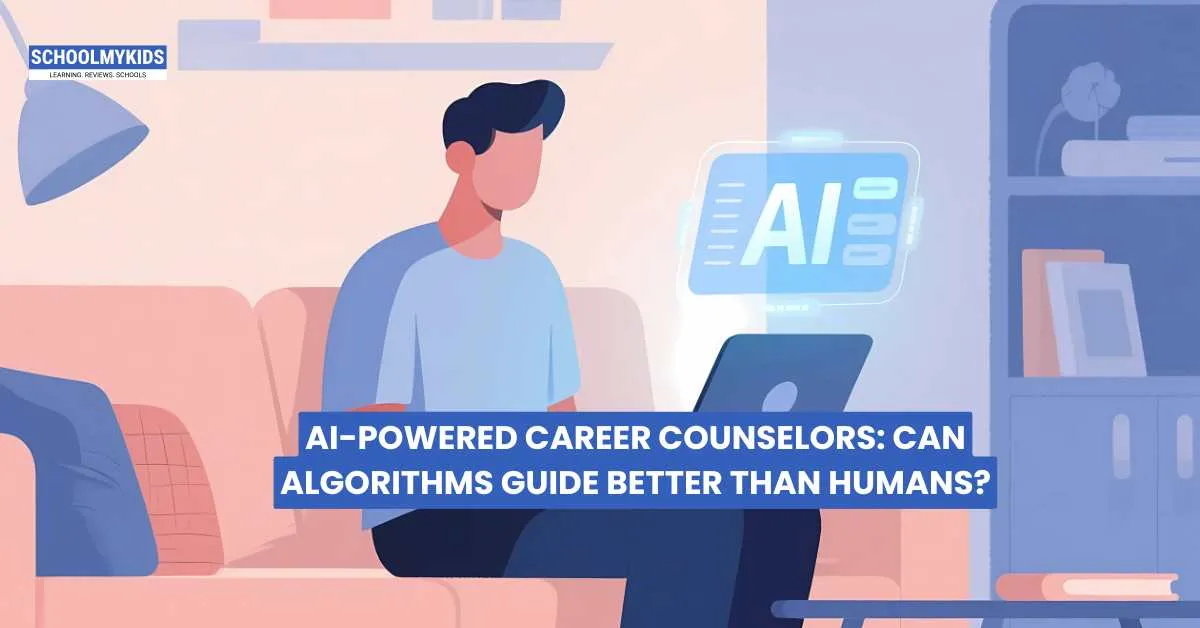The Promise and the Problem of Career Guidance
Choosing a career has always been messy. Teenagers and young adults are expected to make life-shaping decisions armed with little more than standardized test scores, parental advice, and half-baked “interest inventories.” Human counselors can be supportive, but they’re often overworked, biased, or simply unavailable—especially in schools where one counselor serves hundreds of students.
Enter AI-powered career counseling. Algorithms promise to analyze student profiles, compare millions of career paths, and generate hyper-personalized guidance in seconds. It sounds almost too good to be true—and maybe it is.
How AI Career Counselors Work
Unlike traditional counseling, AI systems don’t rely on intuition or anecdotal experience. They operate by crunching data. Here’s what they typically pull together:
- Academic Performance Data – Grades, standardized test results, subject strengths, and progress trends.
- Personality and Interest Assessments – Using psychometric questionnaires or behavioral analysis.
- Labor Market Information – Job openings, salary trends, skills in demand, and industry forecasts.
- Comparative Outcomes – Profiles of people with similar backgrounds and their career trajectories.
With this data cocktail, AI generates recommendations: which careers align with your strengths, which degrees to pursue, which skills to build, and even what entry-level jobs to target. Some systems even suggest alternative paths if your “dream job” doesn’t match your reality.
What AI Does Better Than Humans
- Scale: A human counselor can handle a few dozen students seriously. An AI can scale to millions, offering individual attention without burnout.
- Objectivity: Algorithms don’t carry cultural bias like “engineering is better than arts” or “medicine is the only respectable profession.” At least in theory, they base suggestions on evidence, not prejudice.
- Real-Time Updates: Human counselors rely on outdated brochures. AI can scan live job markets, pulling insights about emerging industries like renewable energy, blockchain, or AI ethics itself.
- Cost Efficiency: While private career coaches charge hefty fees, AI platforms can democratize access by making guidance affordable—or even free—at scale.
Where Humans Still Win
But before you fire your school counselor, remember: algorithms aren’t miracle workers.
- Emotional Intelligence: AI can match a student to careers based on logic, but it can’t sense the anxiety in a teenager’s voice or reassure a parent nervous about unconventional choices.
- Nuance and Context: A human counselor can spot when a student’s poor grades in math are because of a temporary illness, not a lack of ability. AI might just flag them as “unfit for engineering.”
- Ethical Considerations: Career advice isn’t just about jobs—it’s about life satisfaction. An algorithm can tell you where the money is, but it won’t help you wrestle with existential questions like, “Will this make me happy?”
- Accountability: When a human counselor gives poor advice, you can call them out. When an AI system nudges thousands toward a dying industry because of flawed data, who takes the blame?
The Risk of Algorithmic Guidance
The dangers are real. Poorly designed AI systems could:
- Reinforce stereotypes if trained on biased data (e.g., steering women away from STEM careers).
- Oversimplify people into “types” based on limited inputs.
- Create a false sense of certainty, making students believe their future is a math problem with one correct answer.
If AI is deployed carelessly, it won’t liberate students—it will trap them in algorithmic boxes.
The Hybrid Future: Man + Machine
The smartest path forward isn’t to pit humans against algorithms, but to combine them. Picture this:
- AI handles the heavy lifting—data analysis, job market forecasting, skill-gap identification.
- Human counselors interpret and personalize—helping students process the results emotionally, challenge assumptions, and balance career advice with personal values.
Think of AI as the GPS of career guidance. It can show routes and alternatives instantly, but only a human can decide when it’s worth taking the scenic road.
Why This Matters Now
The world of work is shifting faster than any school curriculum can keep up. Careers that didn’t exist ten years ago—data ethicist, drone operator, climate adaptation specialist—are becoming mainstream. Meanwhile, traditional jobs are being automated out of existence. If guidance systems can’t evolve at the same speed, entire generations risk being funneled into obsolete paths.
AI has the potential to prevent that mismatch by acting as a living, breathing database of the future of work. The real question is whether institutions will use it responsibly, or simply as a cheap replacement for already-overstretched counselors.
Conclusion
AI-powered career counseling isn’t about robots replacing humans. It’s about giving young people better maps of an increasingly confusing job landscape. Algorithms can spotlight options, reveal trends, and cut through bias—but they can’t hold your hand when you’re scared about the future.
The future of career counseling won’t be “AI versus humans.” It will be “AI plus humans.” Students don’t just need directions; they need wisdom. And for now, wisdom remains human.









Be the first one to comment on this story.